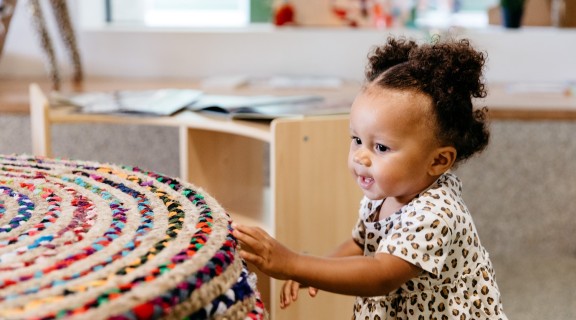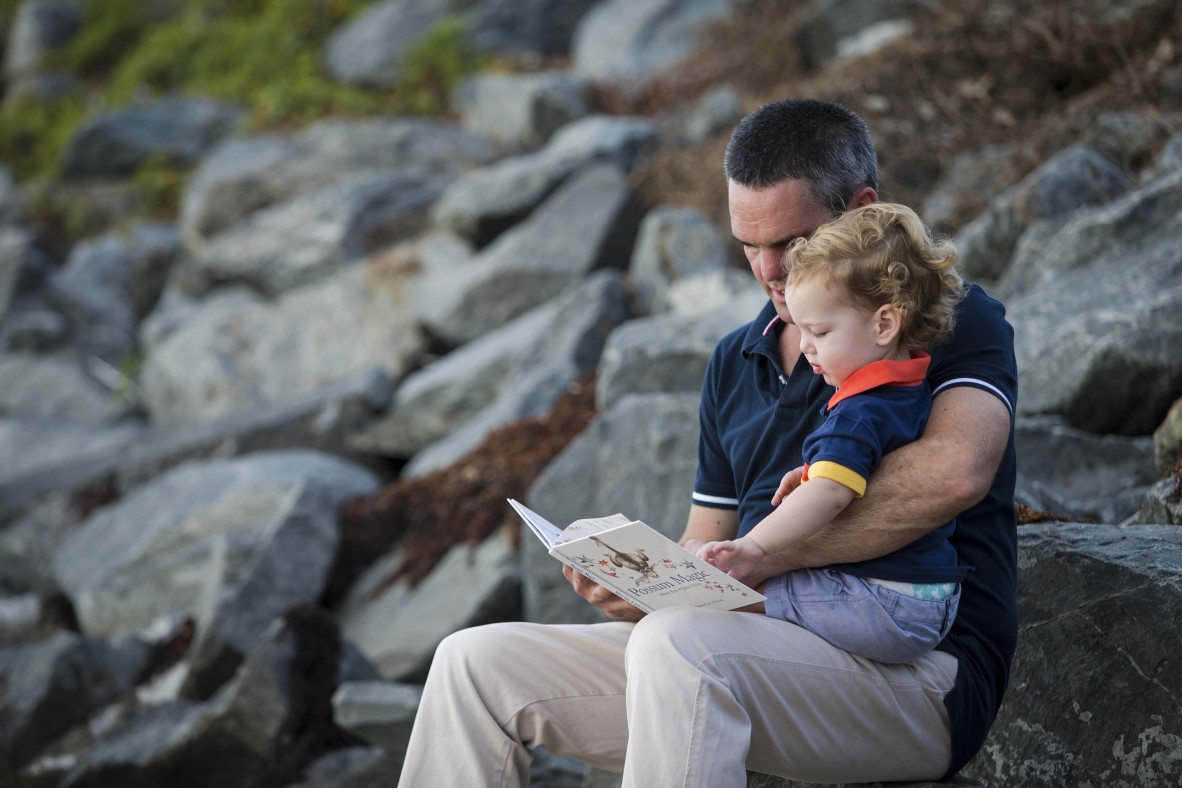
What's under there?!
12 November 2020 | State Library of Queensland
If you have an active, wriggly toddler who finds it challenging to sit for any period of time and share stories with you, you might like to try a lift the flap book.
Lift the flap books encourage young children to interact with the story as they get to reveal what’s under the flap. This type of participation gives them a starring role in the reading of the story as well as encouraging them to predict what happens next.
You can ask questions like: “They sent a cheeky monkey, what do you think the next animal is going to be?” Then you get a conversation which is wonderful for language development, before you discover together if they were right!

Active toddlers might only sit still for a short time, but don't worry: even while roaming around they are still listening to and learning from you.
Lift the flap books also have the added bonus of encouraging fine motor skills and hand eye coordination, two skills that are an essential part of learning to read and write.
To help very young children with lift the flap books cuddle up together while reading, you might like to guide their hands and fingers when lifting the flap or simply point to the flap. Allow your child to guide you in how much assistance they need.
If your toddler is still wriggling and moving around, don’t be concerned. This is an active age and even while they’re moving, they are still listening to you and tuning in with what you’re saying and doing. Stories can still be shared with a moving target as the benefits are all in the conversation. Good luck!
Lift the flap books to try
Dear zoo by Rod Campbell
Tuck me in by Dean Hacohen and Sherry Scharschmidt
Where’s Spot? by Eric Hill
Peek-a zoo by Nina Laden
Comments
Your email address will not be published.
We welcome relevant, respectful comments.